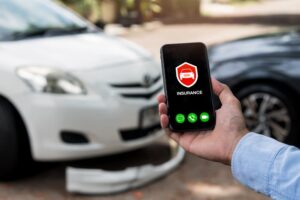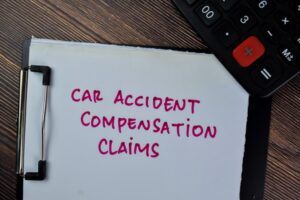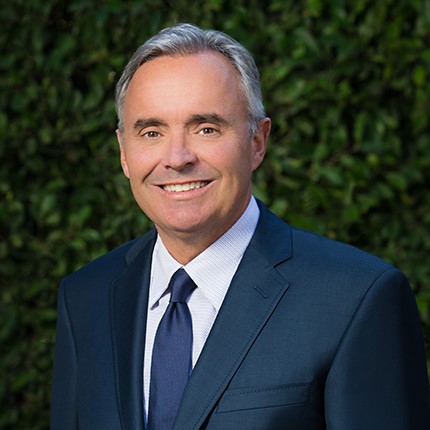Do I Call my Insurance if it’s Not My Fault?
Do I Call my Insurance if it’s Not My Fault?
If you recently suffered injuries in a car accident that was another driver’s fault, always contact a skilled car crash lawyer near you right away. In most situations, your lawyer will deal with the insurance company for the at-fault driver. However, your attorney may still contact your insurance company and notify them of a potential claim. A claim with your own insurer may become necessary if the at-fault driver is uninsured or underinsured (they do not have sufficient insurance coverage to compensate you for all of your accident-related losses).
Your car accident attorney can promptly notify insurance carriers for you and file a timely personal injury claim on your behalf. Your lawyer can also handle all settlement negotiations with insurance company representatives and field settlement offers from them. Finally, if the insurance company does not compensate you adequately, your lawyer can pursue litigation in the court system for favorable monetary recovery.
Schedule a Free Initial Consultation
How do Other Drivers Cause Car Accidents in the First Place?
Car accidents can occur for various reasons, and the actions of other drivers often play a significant role in causing these incidents. Understanding how other drivers contribute to accidents is crucial for promoting road safety and preventing collisions.

One common factor is distracted driving. With the rise of smartphones, GPS navigation systems, and other electronic devices in vehicles, distractions like texting, talking on the phone (for example, without using Bluetooth), or using apps while driving have become major contributors to accidents. When drivers take their eyes off the road, even for a moment, they increase the risk of collisions.
Speeding is another prevalent cause of auto accidents. Drivers who exceed speed limits or travel too fast for roadway or weather conditions frequently experience reduced reaction time, making it hard to respond to roadway emergencies that quickly arise. Speeding increases the severity of accidents and limits a driver’s ability to avoid them.
Reckless driving involves several aggressive behaviors, such as weaving in and out of traffic, tailgating other vehicles, and disregarding traffic signs and signals. These actions put the aggressive driver at risk and jeopardize the safety of other drivers and passengers on the road.
Driving under the influence (DUI) of alcohol or drugs also remains a major cause of auto accidents. Intoxicated drivers frequently experience serious physical and mental symptoms, such as compromised judgment, reduced coordination, and slower reaction times, making them a danger to themselves and others.
Similarly, failing to obey traffic signals, signs, and other traffic laws contributes significantly to auto accidents. Running red lights or stop signs at traffic intersections can lead to serious collisions, often resulting in severe injuries. Moreover, failing to comply with right-of-way rules and failure to yield laws also play a role in accidents – especially at busy intersections.
Driver fatigue may also affect a driver’s alertness and reaction time, increasing the risk of accidents. When drivers are overly tired, they may fall asleep at the wheel or struggle to focus on the road, frequently losing control over their vehicles and causing multiple collisions.
Finally, lack of awareness – or failure to check blind spots – is a common cause of traffic accidents, particularly when drivers make lane changes. Drivers who fail to check their blind spots before merging or turning risk colliding with vehicles that may be in their path.
If you suffered injuries in an auto accident that resulted from one of these types of driver negligence, your attorney can determine your eligibility for filing a personal injury claim. If you can move forward, your attorney can file the appropriate claim on your behalf and handle all communications with insurance company representatives throughout the process.
Types of Car Accidents that Happen when Other Drivers Are Negligent
When other drivers behave negligently or carelessly, various car accidents can occur, each presenting unique risks and potential for injuries. Some of the most common auto accidents that result from the negligence of other drivers include:
- Head-on collisions – Negligence, such as driving on the wrong side of the road or attempting unsafe passing maneuvers, can result in head-on collisions. A head-on accident happens when the fronts of two vehicles strike one another while traveling in opposite directions. These accidents may also cause severe injuries and fatalities due to the high speeds and forces involved.
- Intersection accidents – Negligence at traffic intersections can lead to collisions, such as failure to yield, running red lights, or disregarding stop signs. These accidents may also result in broadside (T-bone) collisions, which are particularly dangerous due to the limited protection on the sides of most vehicles.
- Side-swipe accidents – Drivers who neglect to check their blind spots or fail to signal properly may cause side-swipe accidents. These accidents usually happen when two vehicles traveling in the same direction collide along their sides. While side-swipe accidents may be less severe, they can still lead to loss of control and secondary collisions with other vehicles. They may also push a vehicle out of its travel lane and into the path of another vehicle.
- Rear-end accidents – One of the most common types of accidents resulting from driver negligence is a rear-end collision. When a driver fails to maintain a safe following distance, speeds excessively, or becomes distracted, they may be unable to stop in time to avoid a collision with the vehicle in front of them. These accidents often result in whiplash injuries and may cause substantial damage to both vehicles involved.
- Parking lot collisions – Driver negligence in parking lots and garages may lead to fender benders, door dings, and other minor collisions. Drivers who disregard speed limits, fail to yield the right-of-way at the proper times, or become distracted in parking areas can cause property damage and injuries.
- Car and truck rollover accidents – Aggressive or reckless driving, such as speeding and sudden lane changes, may contribute to rollover accidents. Vehicles with a higher center of gravity, like SUVs and trucks, are more susceptible to rollovers – especially when drivers and carriers fail to properly load, unload, and secure cargo. These accidents can also lead to catastrophic injuries and are often the result of multiple negligent actions.
In all these accident scenarios, proving negligence is crucial for determining liability in a personal injury claim. Whether through distracted driving, aggressive behavior, or other forms of negligence, responsible parties should be accountable for the consequences of their actions (and inactions) on the road.
If you suffered injuries in one of these types of auto accidents, a skilled car accident lawyer will be your advocate and can handle every step of the claims filing and litigation processes for you.
Suffering Injuries in a Car Accident
Car accidents can result in a wide range of injuries for both drivers and passengers. The severity of these injuries varies based on factors, including the speeds of the involved vehicles, the types of vehicles involved, the number of collisions, and the force of those collisions. Some of the most common injuries that car crash victims suffer include:
- Whiplash
- Broken bones
- Traumatic head and brain injuries
- Soft tissue injuries
- Internal organ damage and bleeding
- Severe bruising from seatbelts and airbag deployment
- Open cuts and lacerations
As a result of these injuries, accident victims may need to undergo medical treatment, including:
- Emergency care
- Physical therapy
- Diagnostic testing, including X-rays, CT scans, or MRIs
- Medical evaluations
- Pain management
- Follow-up medical appointments
Seeking timely and comprehensive medical treatment promotes recovery and provides crucial documentation for potential legal claims related to a car accident. Your car accident lawyer can begin contacting insurance companies, gathering documents, and taking other steps to prepare your claim for filing – all while you focus on getting the medical treatment you need.
Potential Uninsured or Underinsured Motorist Claims after a Car Accident
Filing an uninsured or underinsured motorist claim is crucial for individuals who have been in a car accident with a driver who either lacks insurance coverage or has insufficient coverage to fully compensate them for their accident-related losses and damages. This process helps the injured accident victim seek compensation from their own insurance policy to cover the costs incurred due to the negligence of an inadequately insured or uninsured driver.
Before filing a claim, it’s essential that you fully understand your insurance policy, particularly the uninsured/underinsured motorist (UM/UIM) coverage. This coverage protects you when the at-fault driver doesn’t have insurance or insufficient coverage.
Your car accident lawyer can promptly report the accident to your insurance company and provide accurate details about the incident, including the date, time, location, and a description of the damages and injuries you sustained.
Your attorney can also gather the necessary evidence to support your claim. This evidence may include police reports, witness statements, photographs of the accident scene, and documentation of your injuries and medical treatment. The more comprehensive your evidence, the stronger your personal injury claim will be.
Your lawyer can then submit the necessary documentation to your insurance company to initiate the UM/UIM claim. This documentation typically includes a written statement, a copy of the police report, medical treatment records, medical bills, and any additional evidence supporting your case.
Insurance companies may attempt to settle your case for less than the full amount you deserve. Your car accident lawyer will be prepared to aggressively negotiate on your behalf and may threaten your insurance company with legal action in the court system if they refuse to compensate you fairly for your injuries.
Filing an uninsured or underinsured motorist claim involves navigating a process that varies significantly based on state laws and insurance policies. Your car accident lawyer can handle every step of the process, maximizing your chances of recovering the full monetary compensation and justice you deserve.
Recovering Financial Compensation for Injuries in a Car Crash
After a car accident that someone else causes, accident victims can pursue monetary compensation for both economic and non-economic losses. Common examples of economic damages in car accident cases include financial compensation for:

- Medical expenses – These damages encompass costs for hospital stays, surgeries, medications, rehabilitation, and any other necessary medical treatments.
- Property damage – Economic compensation accounts for repairing or replacing damaged property, such as vehicles, in the event of a collision.
- Out-of-pocket expenses – These damages may include compensation for various expenses incurred due to the accident, such as transportation costs for medical appointments, prescription medications, or assistive devices (such as walkers, crutches, or wheelchairs).
- Lost income – Compensation can cover lost income if a car accident results in missed work time or reduced earning capacity. These damages include compensation for income lost during the recovery period and potential future earnings if the injuries lead to long-term or permanent work limitations.
Additionally, car accident victims may recover compensation for various types of non-economic damages, including:
- Pain and suffering – Pain and suffering damages aim to compensate victims for the physical and emotional distress they experienced due to the car accident, including compensation for pain, emotional trauma, and the overall reduction in their quality of life.
- Loss of consortium – This type of compensation recognizes the negative effects that car-accident injuries may have on an injured party’s relationships, including loss of spousal companionship, intimacy, or support.
- Loss of life enjoyment – This compensation accounts for an accident victim’s diminished ability to participate in activities or hobbies they once enjoyed due to their accident-related injuries.
- Disfigurement or scarring – If the car accident leads to permanent physical changes or scarring, accident victims may receive compensation to address the emotional and psychological toll of such alterations.
- Emotional anguish – Beyond compensation for physical pain and suffering, accident victims may receive emotional distress compensation for various psychological effects such as anxiety, depression, or post-traumatic stress disorder (PTSD) stemming from their accident.
While economic damages are more straightforward to quantify, as they involve tangible financial losses, non-economic damages require a more subjective assessment. Courts and insurance companies often consider the nature and severity of an accident victim’s injuries, the effects on the accident victim’s daily life, and expert testimony when determining non-economic compensation.
Contact an Experienced Car Accident Lawyer in Your Area Today

Greg Bentley, Car Accident Lawyer
An experienced personal injury lawyer in your area can file the appropriate personal injury claim on your behalf and notify the proper insurance carrier(s). Throughout every stage of the proceedings, your attorney will aggressively fight for your legal rights and interests and work to maximize the compensation you receive through a favorable settlement offer or litigation award.


